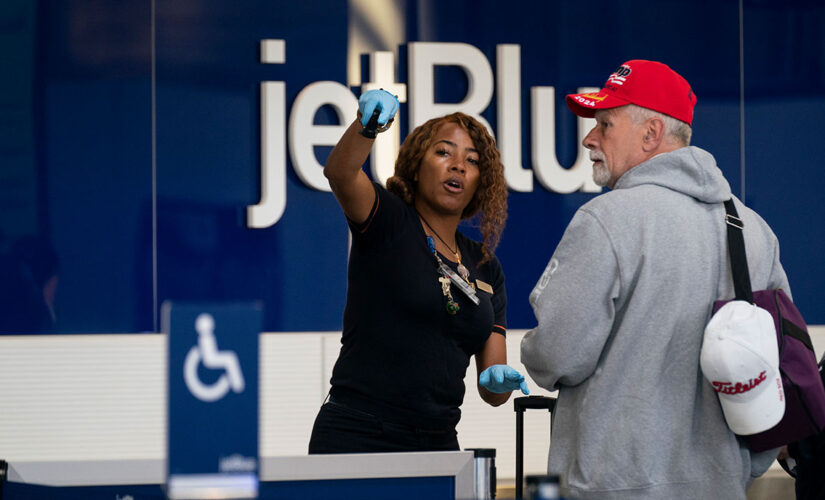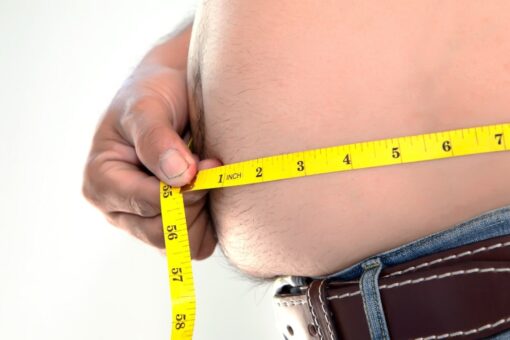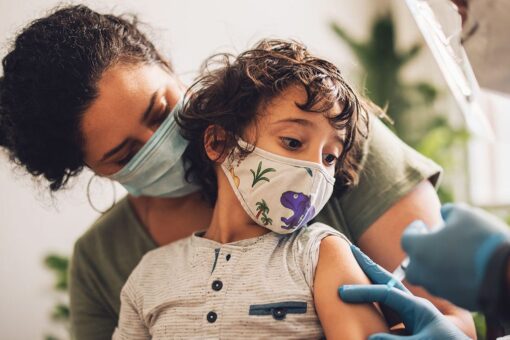NEWYou can now listen to Fox News articles!
On April 13, the Centers for Disease Control and Prevention (CDC) extended the mask requirement for public transportation through May 3, but a federal judge in Florida ruled against the mask requirement just days later. The Biden administration has appealed the judge’s decision but has not asked for a stay.
So when should you wear a face mask and what type should you use to protect against COVID-19?
“The CDC issued the mandate in February 2021, almost two weeks after the president called for a mandate, 11 months after the president had declared Covid-19 a national emergency, and almost 13 months since the secretary of health and human services had declared a public health emergency,” said Judge Kathryn Kimball Mizelle, who was appointed by President Donald J. Trump.
CDC ASKS JUSTICE DEPARTMENT TO PROCEED WITH MASK MANDATE APPEAL
“This history suggests that the C.D.C. itself did not find the passage of time particularly serious.”
But the CDC noted: “Since early April, there have been increases in the 7-day moving average of cases in the U.S.”
“In order to assess the potential impact the rise of cases has on severe disease, including hospitalizations and deaths, and health care system capacity, the CDC order will remain in place at this time.”
Passengers check in at the terminal at Ronald Reagan Washington National Airport, Tuesday, April 19, 2022, in Arlington, Va. A federal judge’s decision to strike down a national mask mandate was met with cheers on some airplanes but also concern about whether it’s really time to end the order sparked by the COVID-19 pandemic.
(Evan Vucci/AP Newsroom)
In February 2022, the CDC updated its mask guidance to center around the estimated COVID-19 community levels, which is a measure that combines three metrics: ” … new COVID-19 admissions per 100,000 population in the past 7 days, the percent of staffed inpatient beds occupied by COVID-19 patients and total new COVID-19 cases per 100,000 population in the past 7 days.”
The agency notes masks are optional if the community level is low, masks should be considered for immunocompromised or those at risk for severe disease including their close contacts if the level is medium, but if the level is high, people should wear a “well-fitting mask” when in indoor public areas – regardless of vaccination status, including K-12 schools.
And anyone with symptoms for COVID-19, a positive COVID-19 test or someone exposed to COVID-19 should also wear a mask, according to the agency.
But there are variety of masks now to choose from, including cloth masks, surgical masks as well as N95 masks.
The CDC acknowledges some offer higher protection than others, but the agency notes mask-wearing should be individualized because some cannot tolerate certain types of masks or wear certain ones consistently.
“Wear a mask with the best fit, protection, and comfort for you,” the CDC said.
COVID MASK MANDATE: UBER, AMTRAK, AIRLINES DROPPING REQUIREMENTS FOR CUSTOMERS AND EMPLOYEES
The agency also distinguishes “masks” from “respirators,” including masks as cloth or surgical masks and respirators as what is commonly referred to as N95 or KN95 type masks, with the “95” meaning they filter out 95% of microparticles.
“The N95 is the American standard and has straps that go around your head; the KN95 is the Chinese or Korean standard and has ear loops,” according to UC Davis Health.
Masks are meant to block droplets and particles as you breathe, cough or sneeze, but if they fit snugly to your face, they also provide some protection against particles spread by other people, such as the virus that causes COVID-19.
Single-layer cloth masks are often preferred for their comfort and style, but only block larger droplets carrying the virus, but are not as effective blocking smaller aerosols or particles carrying the virus, according to the Wall Street Journal.
FILE PHOTO: A workers inspects an N95 respirator during manufacturing at Protective Health Gear (PHG) in Paterson, New Jersey, U.S., January 14, 2022.
(REUTERS/Brendan McDermid)
Surgical masks have an electrostatic charge characteristic through its polypropylene material that helps block the virus that causes COVID-19, but the disadvantage is they can fit poorly to create gaps that allow particles to enter, per the Journal.
Respirators not only filter the air when it fits close to your face, but also blocks the droplets and particles as you breathe, cough or sneeze to prevent the spread of our germs to others, like the virus that causes COVID-19, per the CDC.
Researchers this past January tracked how far respiratory droplets and aerosols traveled as participants coughed while wearing no face covering, a cloth mask and a surgical mask, finding the particles traveled approximately four feet for the participants without a mask compared to two feet for those wearing a cloth mask and less than one foot for those wearing a surgical mask, according a Journal of Infectious Diseases report.
“N95 respirators offer a higher level of filtration than cloth, surgical or procedural masks,” according to Johns Hopkins Medicine.
The medical outlet reminded: “In order to be optimally effective, respirators must be fit-tested and worn properly, tightly fitted against the person’s face.”
People should consider wearing a N95 type mask if they are unvaccinated, if they are caring for someone with COVID-19, working in a position that requires interacting with large numbers of the public or when riding on planes, buses, and trains – especially if it is for a prolonged period of time when it is crowed, according the CDC.
JUSTICE DEPARTMENT WILL APPEAL RULING STRIKING DOWN TRAVEL MASK MANDATE
In spite of the these CDC’s recommendations, however, Amtrack together with the nation’s four largest airlines, United, Delta, Southwest and American, have dropped their masks requirements with JetBlue, Alaska, Spirit and Frontier following suit.
But New York City’s Metropolitan Transportation Authority said it is keeping the mask mandate in place as other similar agencies, including the Washington Metropolitan Area Transit Authority in the District of Columbia and the Southeastern Pennsylvania Transportation Authority in Philadelphia said that masks would now be optional, according to the Times.
But now with the rise in cases of COVID-19 in the United States secondary to the omicron subvariant BA.2, should you start wearing a mask again?
“People should be aware that in the next few weeks, we’re likely to see an uptick in cases and so they should make plans accordingly and start making sure that they have masks,” Dr. Jason Bowling told the Wall Street Journal several weeks ago.
He’s an infectious-disease specialist and director of hospital epidemiology at University Health in San Antonio.
Although Current research suggests BA.2 is more infectious than BA.1, Bowling noted N95 masks likely don’t lose their effectiveness.
CLICK HERE TO GET THE FOX NEWS APP
“We’re definitely starting to see a trend up in cases,” said Dr. Saskia Popescu, an infectious disease epidemiologist and assistant professor at George Mason University.
“My concern is that we may see what happened in the U.K., where they drastically pulled back restrictions and saw a significant surge, and this will contribute to rising numbers.”
Click here for more information from the CDC regarding masks to protect against COVID-19.




